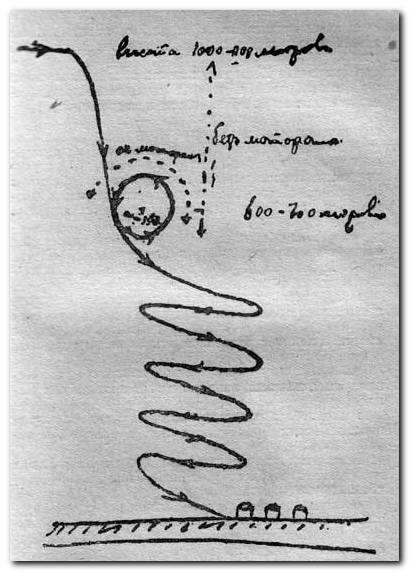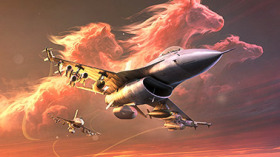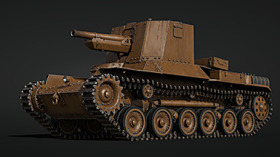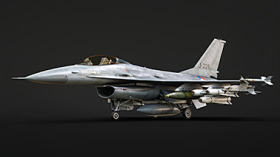
- For PC
- For MAC
- For Linux
- OS: Windows 10 (64 bit)
- Processor: Dual-Core 2.2 GHz
- Memory: 4GB
- Video Card: DirectX 11 level video card: AMD Radeon 77XX / NVIDIA GeForce GTX 660. The minimum supported resolution for the game is 720p.
- Network: Broadband Internet connection
- Hard Drive: 23.1 GB (Minimal client)
- OS: Windows 10/11 (64 bit)
- Processor: Intel Core i5 or Ryzen 5 3600 and better
- Memory: 16 GB and more
- Video Card: DirectX 11 level video card or higher and drivers: Nvidia GeForce 1060 and higher, Radeon RX 570 and higher
- Network: Broadband Internet connection
- Hard Drive: 75.9 GB (Full client)
- OS: Mac OS Big Sur 11.0 or newer
- Processor: Core i5, minimum 2.2GHz (Intel Xeon is not supported)
- Memory: 6 GB
- Video Card: Intel Iris Pro 5200 (Mac), or analog from AMD/Nvidia for Mac. Minimum supported resolution for the game is 720p with Metal support.
- Network: Broadband Internet connection
- Hard Drive: 22.1 GB (Minimal client)
- OS: Mac OS Big Sur 11.0 or newer
- Processor: Core i7 (Intel Xeon is not supported)
- Memory: 8 GB
- Video Card: Radeon Vega II or higher with Metal support.
- Network: Broadband Internet connection
- Hard Drive: 62.2 GB (Full client)
- OS: Most modern 64bit Linux distributions
- Processor: Dual-Core 2.4 GHz
- Memory: 4 GB
- Video Card: NVIDIA 660 with latest proprietary drivers (not older than 6 months) / similar AMD with latest proprietary drivers (not older than 6 months; the minimum supported resolution for the game is 720p) with Vulkan support.
- Network: Broadband Internet connection
- Hard Drive: 22.1 GB (Minimal client)
- OS: Ubuntu 20.04 64bit
- Processor: Intel Core i7
- Memory: 16 GB
- Video Card: NVIDIA 1060 with latest proprietary drivers (not older than 6 months) / similar AMD (Radeon RX 570) with latest proprietary drivers (not older than 6 months) with Vulkan support.
- Network: Broadband Internet connection
- Hard Drive: 62.2 GB (Full client)
.jpg)
Painting of the Aerial ramming attack performed by Pyotr Nesterov
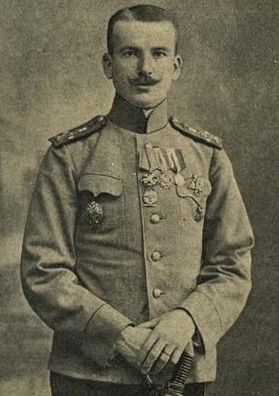 |
Pyotr Nesterov is one of those extraordinary historical personalities who in western literature and history is more often than not a footnote or even completely overlooked, but the story of Nesterov is one of a truly brilliant and inspiring individual.
The first world war, the Great War gave rise to an entirely new way of laying slaughter to your enemies. It gave rise to mass mobilisation on a scale never seen before, of mechanisation, and industrialisation that would give rise to the scenario of total war that would be employed many years later during the Second World War. Many new machines would be employed during this period, one of these the airplane, would see rapid and extraordinary technological leaps and bounds, going from flimsy multi-wing box-kite like apparatus to the sleek metal clad monoplane predators of the sky.
While the technology advanced so did the theory and techniques required to fly them, the skills and knowledge to employ these vehicles in a meaningful fashion would also evolve rapidly. Of the many early pioneering aviators to focus on the military applications of the Airplane was the young and dashing Pyotr Nesterov, born on 27 February 1887 in Nizhniy Novgorod. The son of a military officer, he was destined to join the army. After his father’s death and during the families struggle to survive, his mother sent him to the military school at the age of ten.
|
Nesterov and his French-designed Nieuport IV |
In 1906 the young and newly commissioned second lieutenant Nesterov graduated from artillery school. By 1910 his interest in the new technology of aviation drew him away from the artillery corps and into the school of military aviation. So enthralled was he with this new art, he used his many contacts and friends in the fledgling field of aviation to design and construct his own glider, and while this glider had a very short life, it sealed his desire to continue his dream. His passion drove him and others like him to produce indigenous designs of gliders and aircraft. By 1912 his passion had pushed him to complete his exams as a military pilot and cemented his idea’s about military aviation, he pushed for great emphasis on air combat techniques and began developing the art of aerial acrobatics, his insistence that given the right aircraft a pilot could perform a vertical loop.
On September 9th 1914, Nesterov took off in a French-designed Nieuport IV.G monoplane powered by a 70 hp Gnome rotary engine from Syretsky Military Airfield near Kiev and performed a complete vertical loop, a feat never before achieved. This began the pursuit of aerobatic stunt flying and it’s application in military aviation. The vertical loop would from that day be called the Nesterov Loop.
|
Nesterov became the first pilot to fly a loop |
The outbreak of the Great War would prove a boon and a disaster for the now staff captain Nesterov. Up till this point he had been working feverishly on new aircraft designs and ways to use his aircraft in combat. He also advocated the use of his aircraft as a weapon by using the wheels of his aircraft to deliver a glancing blow to the wings of the enemy aircraft. The advent of war however forced him to put these dreams aside and take up arms along the Southern Front around Lviv.
On the 8th of September, the Albatross biplane of pilot officer Franz Malina and his observer Baron Friedrich von Rosenthal was spotted over the positions of Russian troops. Nesterov climbed into his nimble and fast Morane-Saulnier G and quickly caught up to the Albatross biplane. Nesterov circled above, diving and weaving in front of the Austrians trying to force them down. Malina evaded Nesterov and quickly departed for friendly lines. Determined not to let Malina and Rosenthal escape, Nesterov put into action a daring plan of attack. Approaching from behind the Albatross, he quickly caught up to the biplane, he flicked up and over the Albatross colliding with it. The damaged Albatross tipped over, flipping and spiraling down to the ground, but the collision was too much and Nesterov’s fragile Morane-Saulnier plunged down as well.
Pyotr Nesterov died having completed the first air-to-air combat action ever. Pyotr Nesterov is remembered as a pioneering aviator, whose skill, foresight, and daring opened up a whole new world of aviation. His achievements are commemorated in the Russian Federation by awarding the Medal of Nesterov for aerial excellence or courage by military and civilian air crews.
.jpg)
